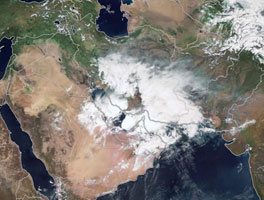 |
Dear readers,
Welcome to the Climate Weekly newsletter by the Centre for Science and Environment’s Climate Change programme and Down to Earth.
In a recent announcement, the Science-Based Targets Initiative (SBTi), a leading organization that guides and verifies climate goals set by companies, has announced that it will allow the use of carbon offsets to meet Scope 3 emission targets. Scope 3 emissions are indirect emissions that come from a company's entire value chain, including suppliers and customers. In some sectors, Scope 3 may constitute over 90% of the firm’s emissions. Our paper on carbon offsetting projects in India published last year, highlighted how unreliable offsets can be as a tool to reduce emissions. This decision has caused internal turmoil within SBTi, as technical experts at the organization were not consulted. SBTi staff have called for the resignation of the Board and CEO. The move is being seen as succumbing to pressure from large corporations and carbon offset players, who stand to benefit financially. I wrote this week on the controversy sparked by this decision.
Elsewhere, with mounting debt challenges confronting low-income nations and their escalating financial requirements to combat the climate crisis, Sehr Raheja and Fizza Zaidi of CSE’s Climate Change Programme write about the headline issues being discussed at last week’s World Bank-IMF Spring Meetings. These include extending concessional finance to developing countries, mobilizing private capital for climate efforts, and easing debt burdens on struggling economies. Meanwhile, a new report warns that debt payments from developing countries are expected to reach record high levels in 2024. You can also learn about how one massive anticyclone recently caused floods in Dubai and humid heat in Mumbai.
Finally, registration is open for CSE’s training programme ‘Demystifying Environmental and Sustainability Data for Effective Communication in the 21st Century’.
|
|
 |
| |
 |
|
| |
 |
 |
| |
By - Trishant Dev
Climate Change, CSE
|
| |
|
 |
|
|
| |
 |
|
| |
| EXTREME WEATHER TRACKER |
| |
UAE receives its highest rainfall in 75 years, with 1.5 year’s worth of rain falling over Dubai in 24 hours, 17 April 2024
|
 |
 |
|
|
| |
 |
|
| |
 |
 |
How a massive anticyclone caused floods in Dubai and humid heat in Mumbai, on the other side of the Arabian Sea, 17 April 2024
|
|
|
| |
|
|
| |
|
|
| |
 |
|
| |
|
|
| |
|
|
| |
|
|
| |
 |
|
| |
CLIMATE NEWS | SCIENCE| IMPACTS| POLITICS |
|
| |
 |
|
| |
|
|
| |
 |
|
| |
|
|
| |
 |
|
| |
|
|
| |
 |
|
| |
|
|
| |
 |
|
| |
|
|
| |
 |
|
| |
|
|
| |
 |
|
| |
|
|
| |
 |
|
| |
|
|
| |
 |
|
| |
|
|
| |
 |
|
| |
|
|
| |
|
|
| |
|
|
| |
|
|